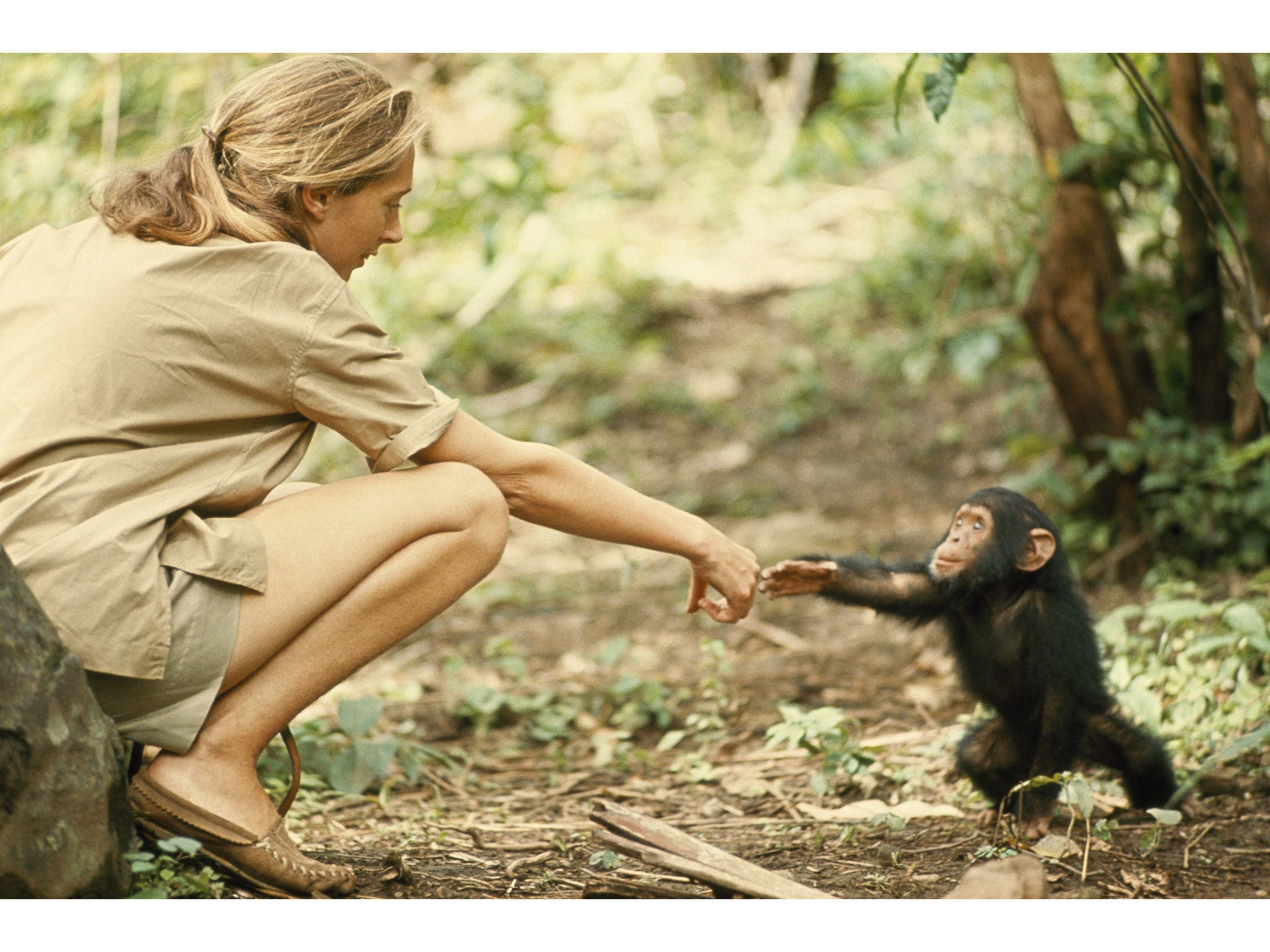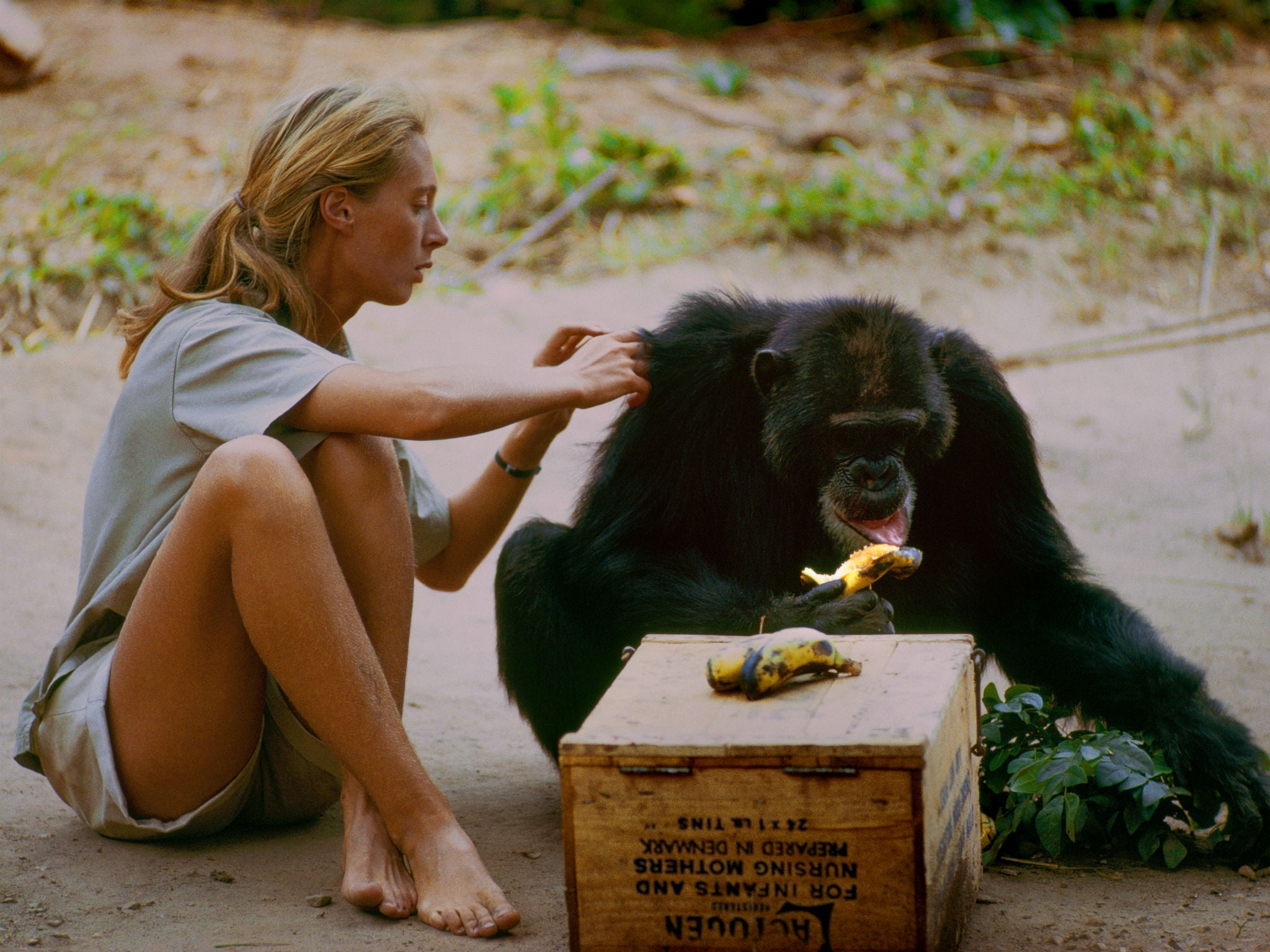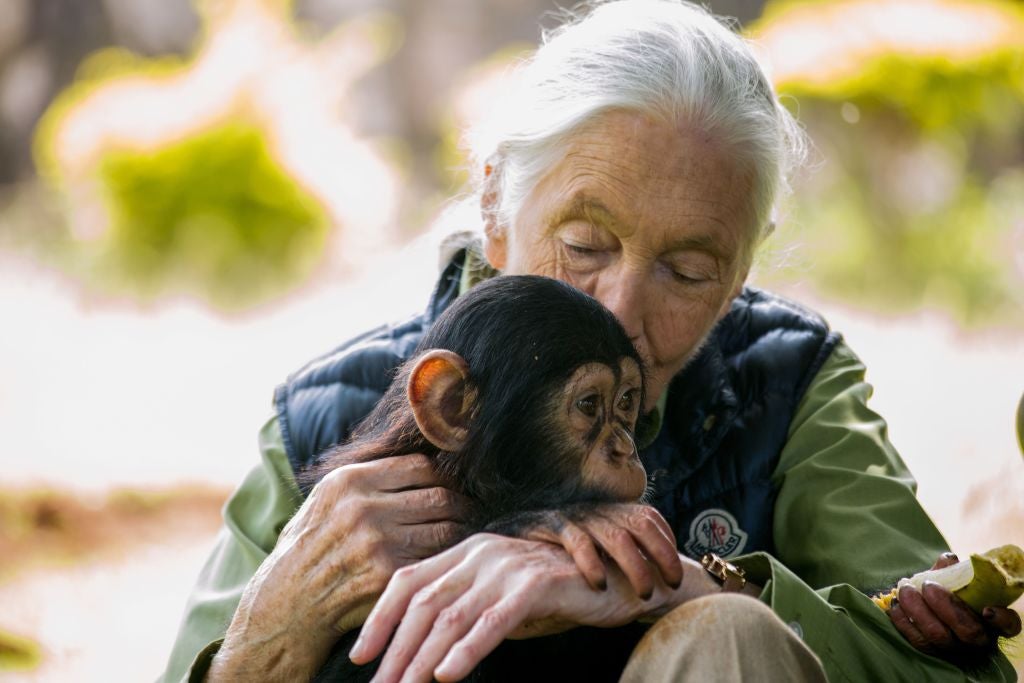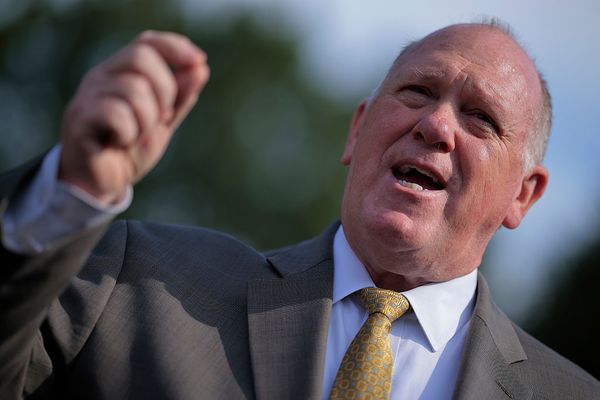Acclaimed chimpanzee expert and conservationist Dame Jane Goodall, who revolutionised the world’s understanding of animal behaviour, has died aged 91.
The much-loved zoologist, primatologist and anthropologist championed chimpanzee protection for more than six decades, also becoming a tireless advocate of the wider natural world and the environment.
As well as establishing the Jane Goodall Institutes to promote wildlife and environment conservation, she founded an environmental and humanitarian programme called Roots & Shoots, wrote books on chimps and conservation, and became the subject of more than 40 films and documentaries.
The list of awards Dr Goodall was given ran to nine pages on her CV, and she was an inspirational role model for young women in science through her high-profile and groundbreaking work in a male-dominated field.
In 2002, she was designated a UN Messenger of Peace, later telling the UN: “I think it’s more important than ever in the world we live in today that we have a vision of what it would be like to live in a peaceful world, the kind of world we all want, and then to see what we as individuals can do to try and bring that about.”
Dr Goodall was also recognised on The Independent’s Climate 100 list of environmental pioneers on both its inaugural edition in 2024 and again just last month for the 2025 list.
Born in Hampstead, north London, Jane Goodall was fascinated by animals from a young age, having read Dr Doolittle, a novel about a man who talks to the animals.
When she was just 23 and without higher-education qualifications, she travelled to Kenya and met Louis Leakey, a famed anthropologist. At his invitation, three years on she began studying chimpanzees in Gombe, in what is now Tanzania, Africa.

Goodall noted how chimpanzees communicated in very “human” ways, such as kissing, hugging, fighting and using tools to forage for food.
These pioneering observations also demonstrated that the chimps had individual personalities, and Goodall used her findings to highlight how animals were far more emotionally and socially complex than previously thought.
For the first time, people were considered part of the animal kingdom, her studies paving the way for wide acceptance that humans shared chimps’ DNA.
From 1962 to 1966, she studied at Cambridge for a PhD in ethology, the science of animal behaviour.
She met her first husband, Hugo van Lawick, when National Geographic sent him to photograph her as she studied chimpanzees.

During their marriage, from 1964 to 1974, they had a son, Hugo Eric Louis. Dr Goodall later said they drifted apart after National Geographic stopped funding Van Lawick’s trips to Gombe.
A year after their divorce, Dr Goodall married Tanzanian parks director Derek Bryceson, who helped her establish the Gombe National Park.
Her research there, which began in 1960, became the longest-running wild chimpanzee study in the world.
In 1977, she established the Jane Goodall Institutes, of which there are now 24 worldwide. Programmes include wild chimpanzee research at Gombe Stream Research Centre and protecting chimps and their habitats in Africa. The institutes also manage sanctuaries for orphan chimps in the Republic of Congo and South Africa.
She was devastated when Bryceson died after the couple had been married for five years, in 1980.

But, ever-energetic, in 1991 Dr Goodall founded an environmental and humanitarian scheme, Roots & Shoots, to enable young people to join projects benefiting the community, animals and the environment. The scheme runs in more than 70 countries.
More than 40 films and documentaries were made about her, including Chimps, So Like Us (1990), which received an Academy Award nomination, Jane (2017), a critically acclaimed biographical documentary, and Jane Goodall: The Hope (2020), a National Geographic documentary on her activism.
A vehement opponent of animal cruelty and exploitation, she called for factory farming to be phased out, warning of its effect on human health, the climate and biodiversity.
She became vegan, and also put her name to calls for a UK ban on hunting trophy imports.
Awards included the Medal of Tanzania, Japan's Kyoto Prize, the Benjamin Franklin Medal in Life Science, the Unesco 60th Anniversary Medal, and the Gandhi/King Award for Nonviolence.

In 2004 she was appointed a Dame Commander of the British Empire, and two years later she received France's highest recognition, the Legion d’Honneur.
The list of academic appointments, honorary degrees – nearly 60 of them - specialist memberships and professional affiliations ran to eight pages on her CV.
Amid it all, Dr Goodall found time to write more than two dozen books, some for adults and some for children. She was delighted when a Barbie doll likeness of her was produced, saying it would inspire young women to follow in her footsteps.
Over the age of 90, she continued to travel the world, speaking about the threats facing chimps and environmental crises.
In autumn 2025, she was due to deliver a series of lectures in Canada and the US.
Her last book, The Book of Hope: A Survival Guide for Trying Times, written with Douglas Abrams, was translated into more than 20 languages. In it, Dr Goodall said she believed we retained our consciousness after death.
“I can’t think of a greater adventure than what is beyond our mortal life,” she said.
Environmentalists, politicians, celebrities recall life and influence of primatologist Jane Goodall
Harry and Meghan lead tributes to ‘visionary and friend’ Jane Goodall
Remembering Jane Goodall in photos: the conservationist renowned for chimpanzee research
‘One in 10 young carers have missed school exam due to looking after loved ones’
Starmer: No ‘golden ticket’ to UK as refugees will have to earn right to stay
Children seeking A&E care are being let down, top doctor warns







